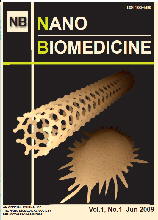Synopsis
Patients missing multiple teeth are often treated with dentures to address masticatory, articulatory, and swallowing dysfunction. Soft relining material is indicated in clinical dentistry when the mu-cosa at the site of denture use is associated with abnormalities of the mucosa due to denture use. However, soft relining material is difficult to clean, and dentures are prone to becoming unclean. Growth of Candida albicans can be a problem for poor denture cleaning. In the present study, C. albicans was cultured on the surface of the soft relining material and then cleaned with an en-zyme-based denture cleanser. Cleaning effect was observed from the morphology of C. albicans and surface structure of the soft relining material was observed from the surface roughness and cross-sectional curves. It was inferred that C. albicans was reduced and didn’t cause nano-sized damage to surface microstructure due to the properties of the enzyme component in the en-zyme-based detergent.
Key words:soft relining material, Candida albicans, Enzyme-based denture cleaner, oral care, healthy life expectancy
Full text PDF
DOI: 10.11344/nano.16.66
Miyake A, Okumura T, Isono H, Suzuki K, Naito T, Yoshikane T, Oka H, Maekawa K, Tominaga K, Higuchi S. Effect of enzymatic denture cleaners on Candida Albicans cultured on a soft relining material. Nano Biomed 2004; 16(2): 66-72.
